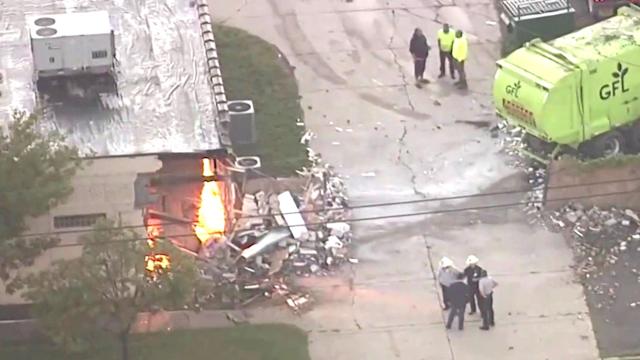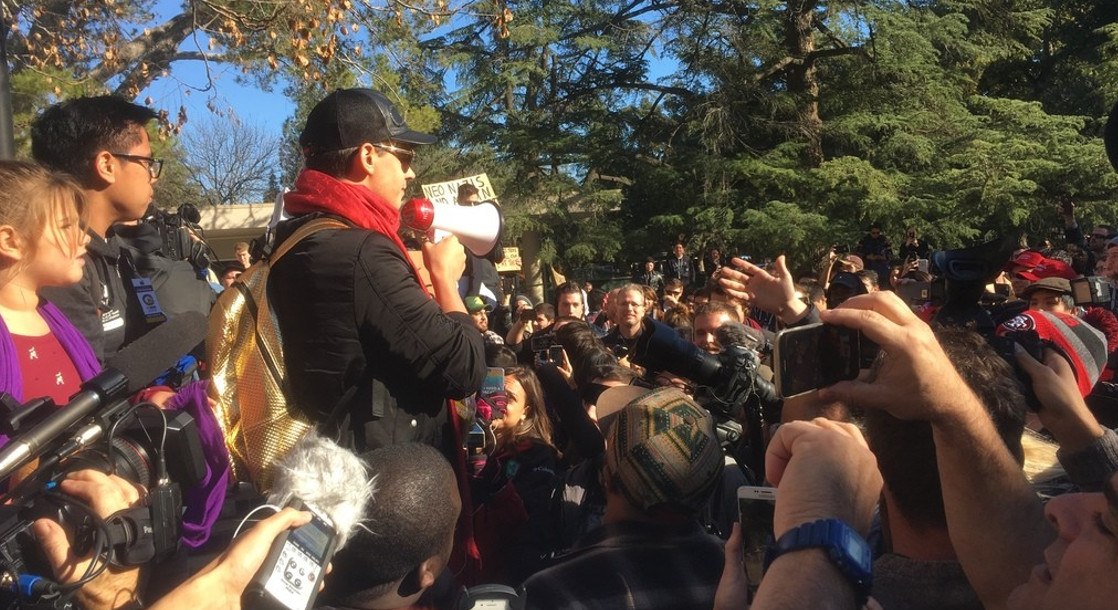Image via
Black market weed cultivators in Sterling Heights, Michigan took a lot of precautions to hide their clandestine grow-op from the cops, but their plans didn’t account for runaway garbage trucks.
Early Wednesday morning, a city garbage truck plowed into a commercial property, smashing a massive hole in the side of the building. The truck driver had swerved to avoid another car that was running a red light at a nearby intersection, but was unable to avoid a collision. After hitting the other car, the garbage truck spun out of control, skidding through the median and crashing into a building across the street.
Fortunately, no one was injured in the accident, but the building did suffer serious damage. When cops and firefighters arrived on the scene to investigate the collision, they saw the tell-tale signs of grow lights shining through the hole that the truck smashed in the wall. Cops then entered the building and discovered that it was home to a large cannabis farm packed with dozens of thriving plants.
Police have already determined that this pot farm is an illegal operation, even though weed is totally legal in Michigan. The Great Lake State voted to legalize adult-use cannabis in 2018, and dispensaries began making their first legal sales at the end of 2019. The state’s combined medical and recreational weed industries are now making over $1 billion a year in sales, and the Bay Mills Indian Community, a sovereign Ojibwe tribe, has even kicked off its own independent adult-use retail market.
But like many other adult-use states, Michigan’s voter-approved cannabis law allows individual municipalities to opt-out of allowing legal pot businesses on their home turf. And Sterling Heights is one of those communities that voted to say no to weed. Local police are now investigating the illicit grow.
“Growing marijuana inside a commercial building is not legal in the city of Sterling Heights,” said Sean Allen, the Sterling Heights fire marshal, according to FOX 2 News.
Industry insiders believe that opt-out clauses in adult-use laws are actually helping the black market stay in business. This is especially true in California, where roughly 80 percent of all municipalities have chosen to ban legal weed businesses. So instead of making a 60 to 120 mile drive to shop at the nearest legal dispensary, many customers are sticking with illegal weed, a situation that contributes heavily to the state’s serious black market issues.











